Fusing French Finesse And Japanese Artistry With Bag Designer Marie Yasutake
Making bags that carry comfort, style, and history
Like her fledgling business, bag designer and entrepreneur Marie Yasutake’s Japan story is moving at full-speed and showing no sign of slowing down.
After arriving in Tokyo in 2015 for a two-month internship, Marie Yasutake became enamored with Japan and it wasn’t long before she knew deep inside her that she wanted to make the country her second home. Following a brief return home to her native France to tidy her affairs, she was back in Japan to launch her career in the field of textile-related architecture.
Marie worked in both urban and rural locations before opting for the latter in 2016, settling in her new husband Shota’s hometown in Saga Prefecture. But, after a stint as an office worker followed by roles in marketing and design, at the age of 24 she found it too tough being a young, foreign woman in a traditional Japanese company.
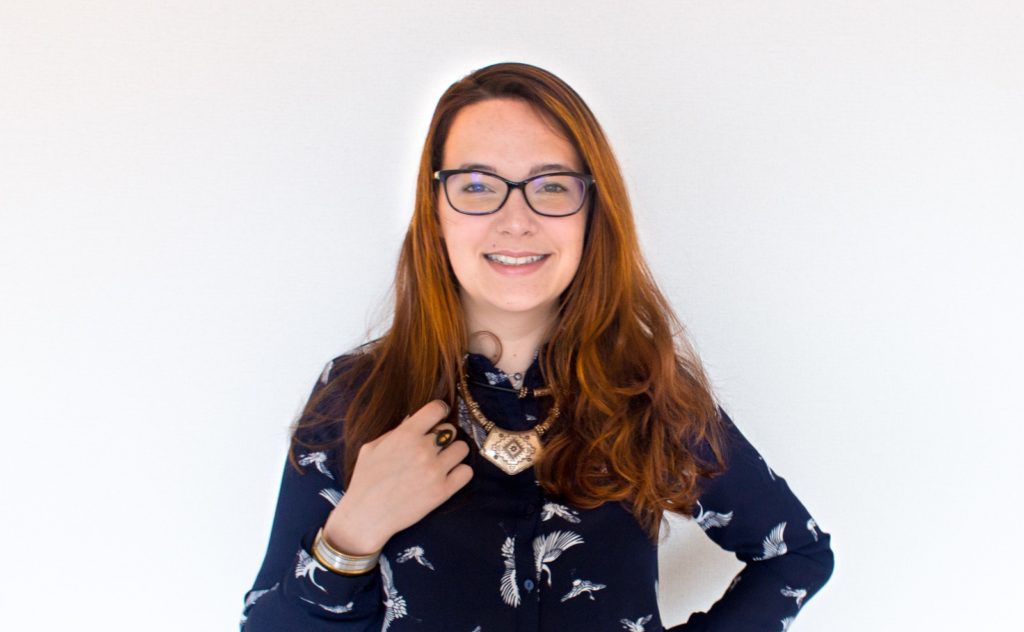
Marie Yasutake
Inspired by monozukuri (the Japanese art of craftsmanship) and motivated by her experiences as a working woman, Marie launched C. Marie with Shota in January 2018. The idea was to create a bag brand comprising French-inspired design and Japan-inspired manufacturing that gives women confidence — and comfort.
Savvy Tokyo caught up with the young entrepreneur to find out more about her story.
Marie, what sparked your interest in design?
I’ve always liked architecture, especially unusual shapes, and been interested in textile making. While I was at Lyon University studying Japanese language and international trade, I did two internships in the field of textile architecture in 2015. One was in France and the other in Japan.
I really liked living in Japan, so I returned after graduation to work for a textile manufacturer in Kamakura. In January 2016, I moved to Saga Prefecture in Kyushu to work for a company that designs, manufactures and installs textile structures, which deepened my love of design.
I had seen the pride in which Japanese craftsmen create and continuously develop their products.
Why did you decide to start your own business?
The company I was working for at the time was a traditional Japanese company with a strict environment and I found it hard. I didn’t know whether I could work there longer or whether I should change my job. After 18 months in the company, I decided to quit to start C. Marie with Shota as we were keen to do something related to monozukuri. I had seen the pride in which Japanese craftsmen create and continuously develop their products and Shota had seen how people benefit from monozukuri through his role in a waterbed-making company. We wanted to promote monozukuri and enable more people to enjoy its products, so we decided to start a company together: I would design bags and he would manage the business.
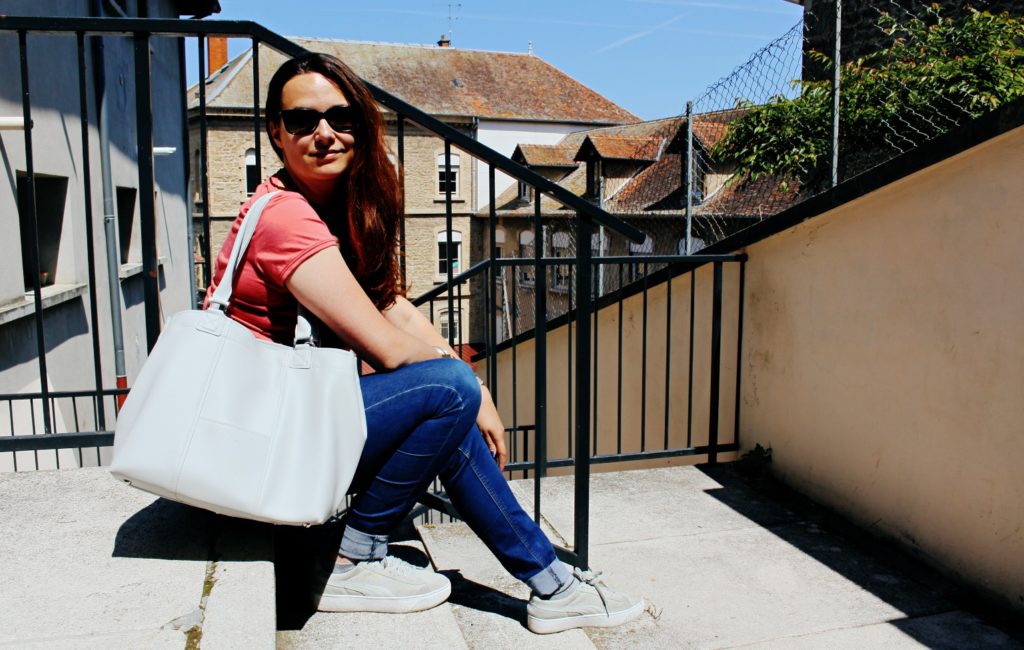
Comfort and style: Marie posing with a C. Marie bag.
Why bags?
I’ve always loved bags but in my student days, I never had a lot of money to spend on them. I’ve never had a good bag that lasts a long time. There are lots of bags to choose from in Japan but the majority of them all leather, which is not a responsible material. Also, in my opinion, the bags on the market in Japan don’t suit women’s needs. They are heavy even when empty and don’t have enough space to fit all the things we need to carry. I hope that the bags I design give women confidence and pride.
What inspires your design?
First, I think about who will use each bag. I used to work for a regular company as an “office lady,” so I know what working women need to carry every day. In companies with a strict dress code, colorful bags may not be acceptable, so I decided to create elegant designs in business colors—light gray, dark gray, dark blue, white and other simple colors. The bags would be durable enough to use every day, big enough for all the items women need, and practical for commuting and being seen at the office.
[T]he bags on the market in Japan don’t suit women’s needs: They are heavy […] and don’t have enough space to fit all the things we need to carry.
I also wanted to avoid using leather for ethical and environmental reasons, so I use high-quality PVC leather designed by the French company at which I did an internship. I know how beautiful it is and how it can be molded into shape. The textile we use is 100 percent recyclable and made to last a long time.
Why did you choose domestic production?
While working in Saga Prefecture I saw my colleagues’ skills and passion in monozukuri. Seeing the pride on the faces of the architects and craftsmen as they considered a new project moved me so much. When I started to design bags, I knew that I wanted them to have the essence that they were made by skilled Japanese craftsmen.
What challenges have you faced and how did you overcome them?
We wanted the bags to be handmade, but each manufacturer wanted an order of at least 200 bags each month. That was impossible as we couldn’t sell that volume. We decided to search for a much smaller manufacturer closer to home. Eventually, we found a craftsman in Fukuoka who was motivated to work with us right away, to make the number of bags that we could sell. Our plan has been to sell 20 to 40 bags each month. In July we exceeded that target.
At first, people didn’t know our brand but then friends shared our web page and we started to make online sales. Our customers mainly live in Saga Prefecture but some live in Tokyo and other parts of Japan.
I want them to know that yes, I am a woman, and yes, I can do my job.
How has being a woman affected your work?
I’ve had problems in the companies I worked in, particularly with the salesmen, because I am a woman. And not only that, I am a young, foreign woman! But because of these difficulties, I have become stronger.
Now, with C. Marie, men will ask my husband—not me—about our designs. He always tells them to ask me because that’s my area. I want them to know that yes, I am a woman, and yes, I can do my job.
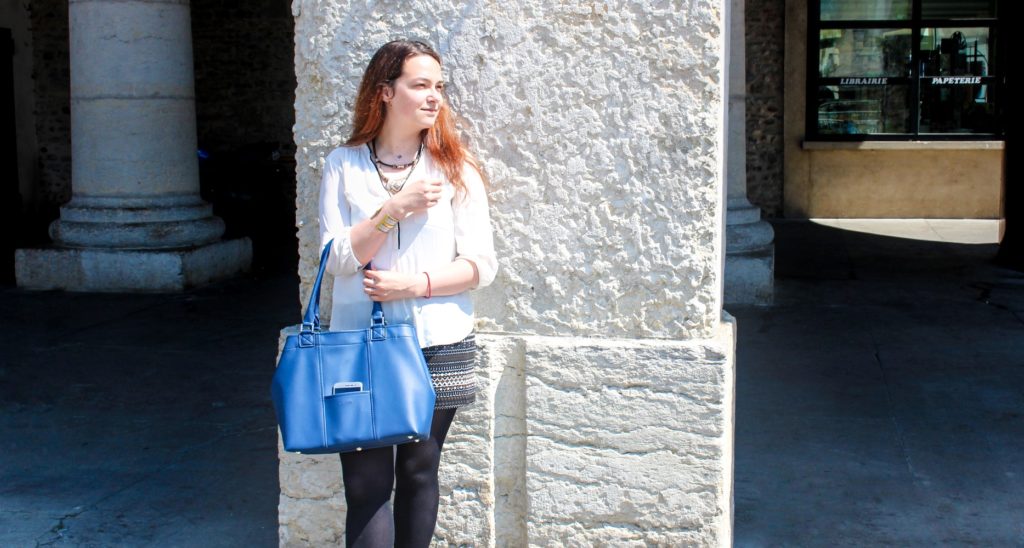
What has surprised you since you started the company?
Local newspapers and TV shows have been so interested in our story. I think it’s because I’m a French girl in quite a remote place. Our bags are neither Japanese nor a big brand, and yet we’re supporting a local craftsman, so it’s appealing to the public.
What are your goals for the business?
I’d like to make a lot of different bags, including colorful ones for everyday use and ones for the weekend. I’d like to have a wide range and to continue to design everything myself. It would also be great to have a pop-up store, even once a year at an event. We also want our brand to be officially recognized as made in Saga and cruelty-free.
What advice would you give a fellow female entrepreneur?
Bring some confidence to your business. We can do it; there is nothing we can’t do. However, as entrepreneurs, there are moments when we are very excited and moments when we don’t know what we are doing. The experience is like a wave. When you are on the down wave, don’t think of stopping. Do everything you can to make your business happen.
What do you do in your free time?
As Shota and I work together at home, we like to get out on the weekends, so we often go to Fukuoka as it’s not far. And I love drawing; I could draw all day.
To learn more about C. Marie, see the brand’s official website here.












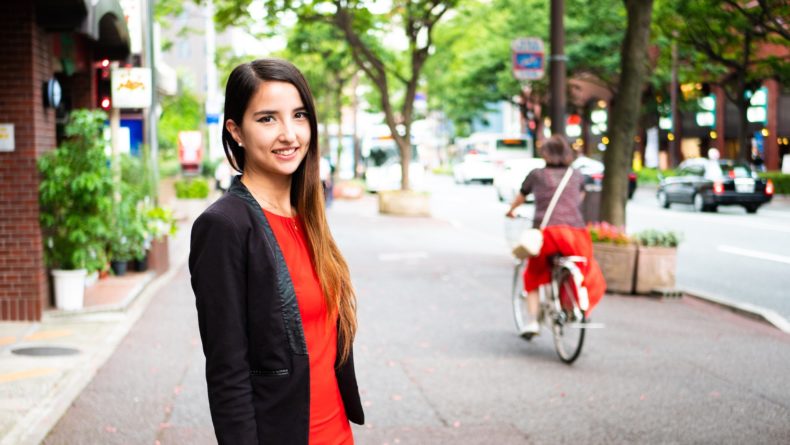
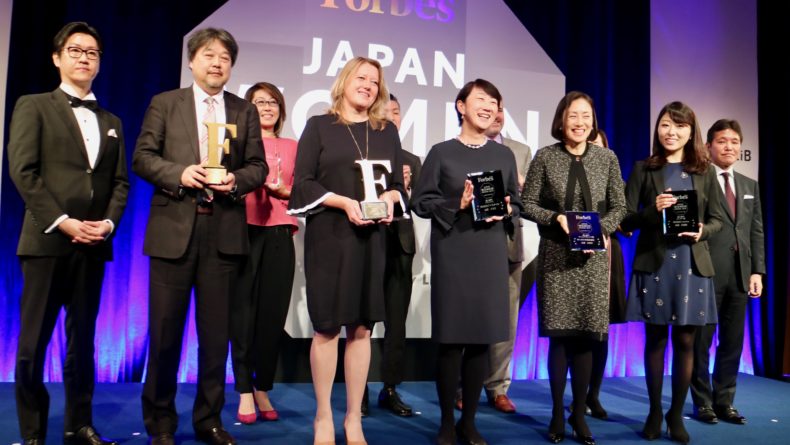
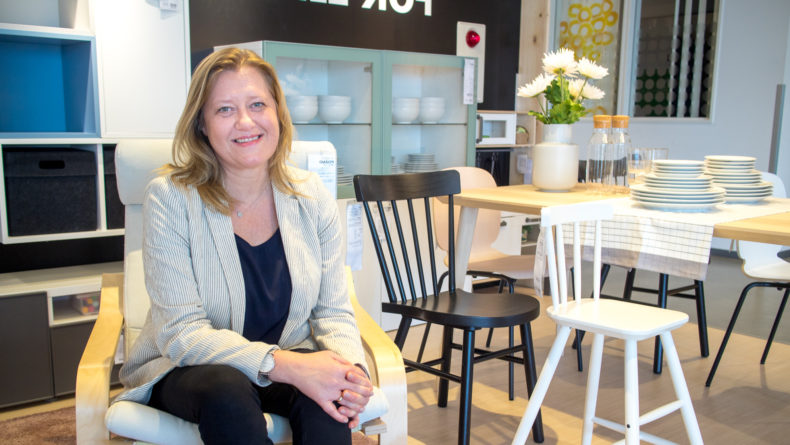
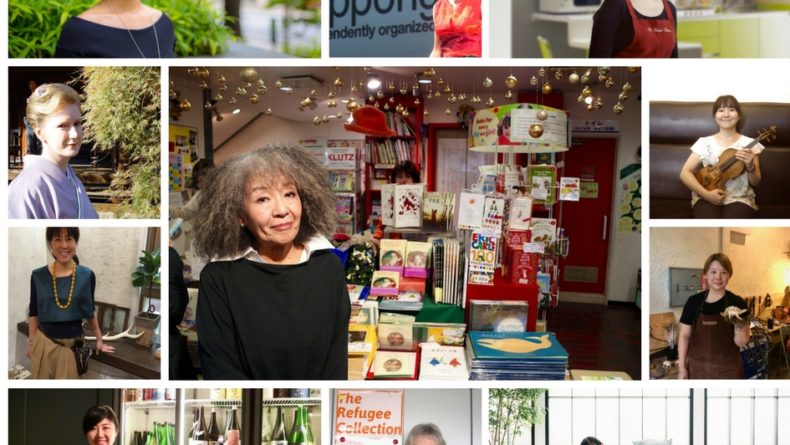
Leave a Reply